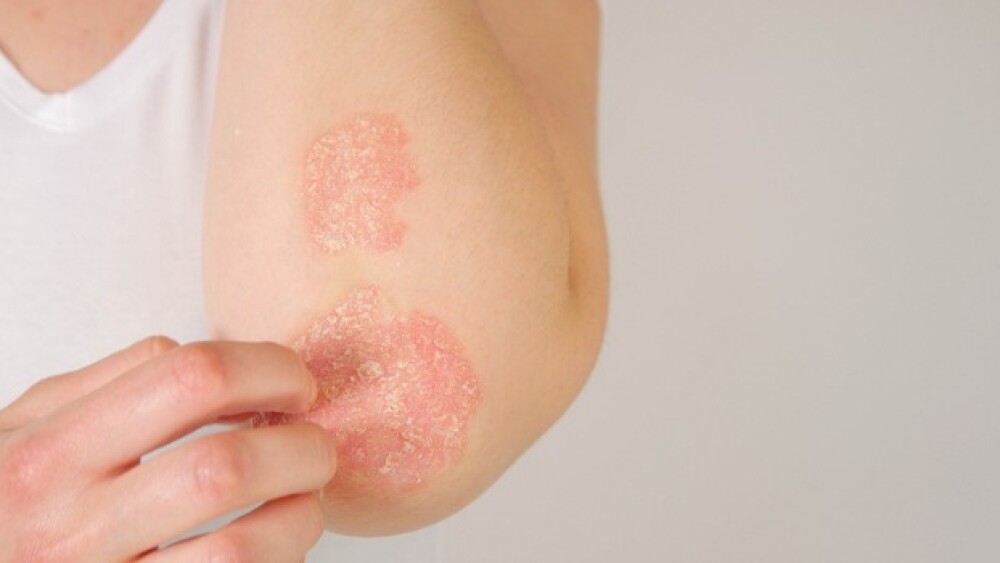Following a delay and an initial rejection, UCB’s IL-17A/IL-17F blocker bimekizumab was approved for moderate-to-severe plaque psoriasis, which will now be marketed with the brand name Bimzelx.
Pictured: Woman scratching skin lesions on her elbow/iStock, helivideo
The FDA on Wednesday approved UCB’s bimekizumab for the treatment of adults with moderate-to-severe plaque psoriasis. The treatment will be sold under the brand name Bimzelx.
Bimzelx is a humanized IgG1 monoclonal antibody that works by targeting IL-17A and IL-17F, both central players in the inflammatory cascade. Bimzelx is the first FDA-approved plaque psoriasis medication that inhibits both cytokines, according to UCB’s announcement.
“We know that completely clear skin is valued by people with psoriasis,” Emmanuel Caeymaex, executive vice president of immunology solutions at UCB, said in a statement, adding that the approval of Bimzelx can help raise the standard of care for this condition.
“With BIMZELX now approved for psoriasis, we will move forward rapidly to submit applications for additional indications in the U.S.,” Caeymaex said.
Bimzelx is administered using a single-dose 160-mg/mL prefilled syringe or autoinjector, and its approval covers adult patients who are also candidates for systematic therapy or phototherapy. Its label does not carry a boxed warning but does have precautions against suicidal ideation and behavior, infections, inflammatory bowel disease, tuberculosis and abnormalities in liver biochemistry.
UCB backed its FDA application with data from three Phase III studies. The first, dubbed BE VIVID, compared Bimzelx with placebo and J&J’s Stelara (ustekinumab). Meanwhile, the BE READY trial used placebo as a comparator, while the BE SURE trial pit Bimzelx against AbbVie’s Humira (adalimumab).
Taken together, data from these three studies showed that Bimzelx can induce greater levels of skin clearance than placebo, Stelara and Humira. In particular, more than 80% of treated patients achieved clear or almost clear skin, as defined by at least a 90% improvement in the Psoriasis Area & Severity Index (PASI).
Complete skin clearance, defined by a 100% improvement in PASI, was observed in around 60% of patients treated with Bimzelx.
Wednesday’s approval is the culmination of a long and somewhat rough regulatory road for Bimzelx. In October 2021, UCB reported that the FDA needed to delay its verdict on the antibody’s Biologics License Application because the regulator was unable to conduct on-site facility inspections due to coronavirus-related travel restrictions.
In May 2022, the delay ended in a Complete Response Letter, with the FDA pointing to “pre-approval inspection observations” that the company needed to address before the application can be reconsidered.
Bimzelx’s approval is UCB’s second regulatory win this week. The biopharma company won another FDA nod on Tuesday for its subcutaneous C5 complement inhibitor zilucoplan, now marketed as Zilbrysq, for generalized myasthenia gravis.
Tristan Manalac is an independent science writer based in Metro Manila, Philippines. He can be reached at tristan@tristanmanalac.com or tristan.manalac@biospace.com.






